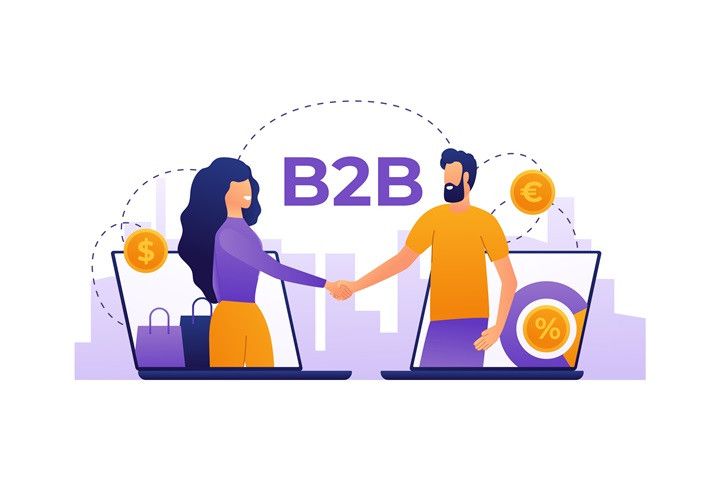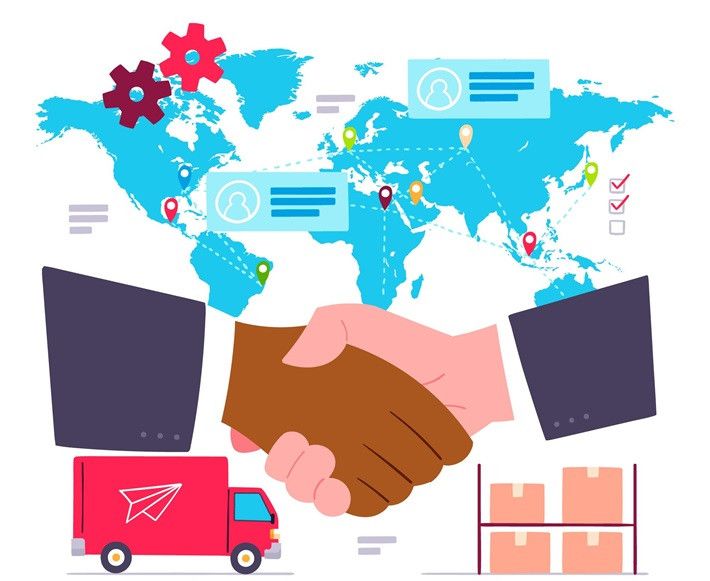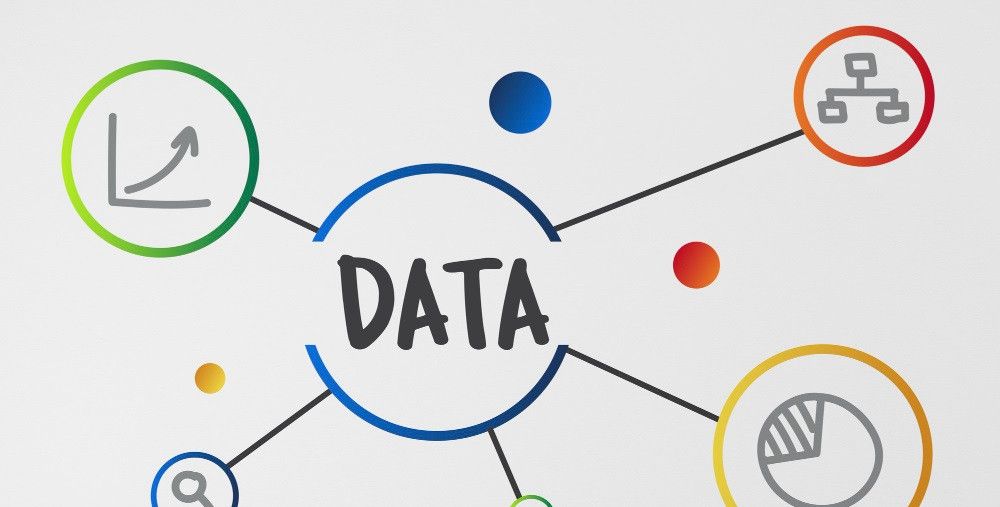


In the increasingly competitive B2B landscape, fostering strong, enduring relationships with business partners is more important than ever.
Loyalty programs tailored to the B2B space have emerged as powerful tools for achieving this, offering a strategic way to engage and retain key players such as dealers, retailers, distributors, and third-party vendors.
Unlike B2C loyalty programs that focus on individual consumers, B2B programs are designed to enhance the value proposition for business partners by providing them with exclusive benefits, personalized services, and strategic incentives that align with their business goals.
These programs go beyond mere transactional rewards, instead focusing on building trust, encouraging long-term collaboration, and driving mutual success.
As businesses seek to differentiate themselves in a crowded market, B2B loyalty programs have become essential for sustaining growth, ensuring partner satisfaction, and securing a competitive advantage.

A B2B loyalty program is a strategic initiative aimed at engaging and retaining key channel partners (trade partners) such as dealers, retailers, distributors, and third-party vendors within a B2B ecosystem.
These programs are specifically designed to build and strengthen brand loyalty by offering additional value to long-term trade partners.
Unlike traditional consumer loyalty programs, B2B loyalty programs focus on enhancing the business relationships that are crucial to a company’s success.
They often include rewards such as exclusive discounts, tiered benefits, access to special services, or tailored incentives that support the business goals of the participants.
By offering these targeted rewards, B2B loyalty programs not only foster deeper loyalty among business partners but also encourage repeat business, improve satisfaction, and ultimately contribute to the sustained growth and stability of the company.
In a B2B ecosystem, trade partners or channel partners refer to the various businesses that collaborate within a supply chain or distribution network to deliver goods or services to the end customer.
These partners can include dealers, distributors, retailers, wholesalers, and third-party vendors. Each plays a crucial role in the movement of products, the execution of services, and the overall success of the supply chain.
Dealers are businesses that purchase products in bulk from manufacturers or distributors and sell them to end customers or other businesses. They often add value through installation, customization, or support services.
Distributors act as intermediaries between manufacturers and retailers or other businesses. They purchase large quantities of goods, manage inventory, and handle the logistics of getting products to market. Distributors often provide added services like packaging, marketing, and customer support.

Retailers are businesses that sell products directly to end customers, either in physical stores or online. In a B2B context, retailers might also supply products to other businesses that need them for their operations or resale.
Wholesalers buy goods in large quantities from manufacturers and sell them in smaller quantities to retailers or other businesses. They help bridge the gap between production and retail by managing large-scale distribution.
These are external companies that provide additional services or products that complement the primary business offering. This could include logistics providers, marketing agencies, or software vendors that integrate with a company’s operations.
While B2C loyalty programs are well-known, it's crucial to understand that the strategies behind them don't directly translate to the B2B context. Crafting a successful B2B loyalty program requires a tailored approach, built from the ground up to meet the specific needs of the B2B market. Here’s a breakdown of the essential differences between B2C and B2B loyalty programs:
B2C loyalty programs typically focus on earning and redeeming points, suited for frequent, lower-value purchases. However, in the B2B sector, this approach is less effective. Instead, loyalty programs in B2B thrive on tiered incentives and subscription-based discounts, which align with long-term commitments and higher-value transactions.
B2C programs are often free and offer instant rewards upon joining. In contrast, B2B loyalty programs usually require clients to enter a contract or make a purchase to participate. B2B programs are also more compatible with subscription models that deliver substantial benefits in return.
While B2C programs often use discounts, bonus points, and early access offers, B2B loyalty programs emphasize rewards that enhance the client's business. These can include exclusive experiences or services that provide significant value to their operations.
In B2C, personalization usually means tailoring email communications and offers based on customer segments. In B2B, personalization is more critical due to a smaller, more demanding customer base. B2B companies often customize rewards like training sessions to meet the specific needs of each client.
B2C loyalty programs frequently use limited-time promotions to create urgency through FOMO (fear of missing out). However, this tactic is less effective in B2B, where decisions are made more slowly and carefully. Instead, B2B programs should focus on promoting long-term benefits to encourage membership.

For B2C companies, loyalty programs are a tool to collect customer contact information and data. In contrast, B2B companies often already possess this information but can use their loyalty programs to gather valuable feedback through incentive-based surveys, providing deeper insights into their customer base.
By understanding these distinctions, businesses can design loyalty programs that resonate with their specific audience, whether they're targeting consumers or other businesses.
B2B loyalty programs are equipped with unique features designed to differentiate your brand from the competition. Here’s what makes these programs truly effective:
VIP memberships offer a way to reward business partners regardless of their spending or points accumulation. By offering VIP memberships to loyal partners, B2B companies can increase engagement and build stronger relationships. These memberships often include benefits upon registration, such as exclusive access to surveys, prize draws, and other exciting rewards, without the need for tiers or points.
Borrowed from B2C strategies, experiential rewards in B2B programs can include access to exclusive events, free movie tickets, or other exciting incentives. The goal is to delight your business partners' employees with unique, memorable experiences. These rewards don’t always have to be costly but should always offer an innovative and engaging touch.
Referrals are crucial in both B2B and B2C environments. Partners who provide positive feedback, share your products and services, or recommend your B2B loyalty program deserve to be rewarded. Offering exclusive incentives for referrals not only shows appreciation but also drives revenue and brand loyalty.
Similar to B2C loyalty programs, B2B loyalty rewards often include branded merchandise and collectibles. These items, provided free of charge along with orders, may seem simple but can significantly boost morale and productivity among business clients. For companies with strong partnerships, receiving branded merchandise is a valuable perk that fosters goodwill.
Coalition loyalty programs are indirectly connected to B2B environments and aim to create a win-win scenario for both businesses and their clients. By dividing rewards into different categories, companies can incentivize their partners while also supporting their internal teams, leading to enhanced productivity and profitability.
A rebate program is a type of loyalty initiative that provides customers with a direct financial incentive for their business. Under this system, customers receive a percentage of their total purchases or a fixed amount per transaction as a rebate.
The rebates can accumulate over time and be used towards future purchases, credited to the customer's account, or even paid out as a lump sum at the end of a specified period. By offering a tangible financial benefit, a rebate program helps to offset the cost of doing business and makes customers more likely to continue purchasing from the company.
The Lenovo Expert Achievers Program (Leap) is a dynamic B2B loyalty initiative that blends two reward mechanisms. Members can earn points by participating in Lenovo’s educational sessions and by selling Lenovo products. These points can be redeemed for cash rewards or gift cards through individual Leap accounts, making it a versatile program that caters to both professional development and sales performance.
Mailchimp’s membership program is a straightforward yet effective B2B loyalty initiative for marketers and digital agencies.
The program offers exclusive rewards to loyal partners, including invitations to special events and access to Mailchimp’s expertise. Additionally, partners benefit from early access to new products and round-the-clock customer support, enhancing their ability to leverage Mailchimp’s tools and services effectively.
Telarus has crafted a smartly designed B2B loyalty program that motivates its corporate partners to promote and sell their services. The program brings together companies specializing in cybersecurity, cloud networks, and commercial solutions, with rewards tailored to each partner’s contributions. Loyalty points are awarded based on the value of deals closed, and partners can enjoy rewards such as sales training, VIP experiences, gifts, and marketing support, all aimed at boosting their business success.
IBM’s VIP Rewards program is one of the most prominent B2B loyalty programs, designed to recognize and engage its business clients through gamified rewards. The program provides access to exclusive services by setting predefined challenges. Clients who successfully complete these challenges earn loyalty points, which can be redeemed for interactive sessions with IBM experts and gift cards. To add a competitive edge, IBM maintains a points-based leaderboard, fostering a sense of competition among its loyal members.
Celebrity Cruises offers a compelling B2B loyalty program tailored to the travel industry. The Celebrity Rewards program provides direct cash incentives for travel agencies that sell cruise trips. Agencies earn 500 points for each cruise sold, and once an agent accumulates 2,500 points, they can redeem them for cash via a Celebrity Rewards Mastercard. Each travel agent within an agency earns individual points, ensuring fair rewards distribution.
GM's Standards for Excellence (SFE) program is a prime example of an automotive loyalty program that focuses on enhancing dealership performance. This initiative offers financial rewards to dealers who meet specific criteria related to sales, customer service, and training. By incentivizing high standards in operations, GM ensures that its dealers deliver superior customer experiences, which in turn drives higher sales. The SFE program not only strengthens the relationship between GM and its dealers but also reinforces the overall quality and reputation of the brand within the automotive industry.

Lately, B2B loyalty programs have become indispensable to firms wishing for the enhancement of their corporate customer relations. On having a vision of personalized incentives, unique privileges and customized experiences, corporations know better how to inspire loyalty among them by developing long-term relationships.
A B2B loyalty program can also expand and grow into more meaningful connections with important partners thanks to technological advances and data analysis. Most enterprises are now recognizing the importance of customer retention in strategic management; therefore, companies seeking steady growth will keep on investing in strong business-to-business (B2B) loyalty programs. To learn more about various loyalty programs, click here.